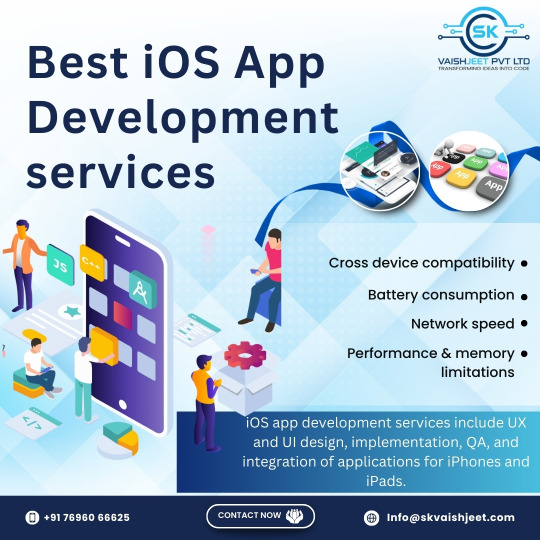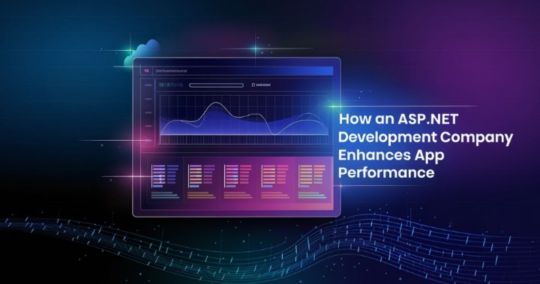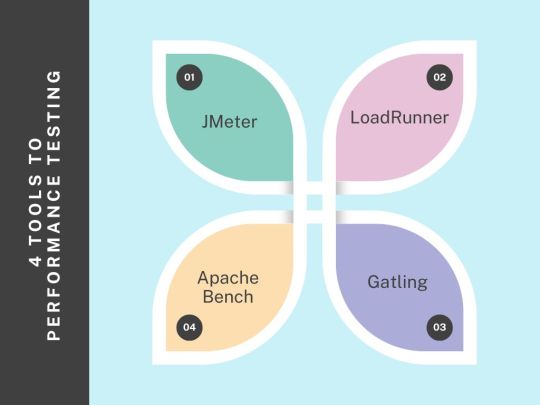#AppPerformance
Explore tagged Tumblr posts
Text
How to Hire React Native Developers for High-Performance Apps
Looking for skilled React Native developers? Learn how to hire top talent while ensuring your app runs smoothly and efficiently.
#ReactNative#MobileAppDevelopment#TechHiring#AppPerformance#SoftwareDevelopment#HiringTips#HireReactNativeDevelopers
0 notes
Text
Building Resilient Applications: The Importance of Performance Testing in Quality Engineering
#PerformanceTesting#QualityEngineering#ResilientApps#SoftwareTesting#TechInnovation#AppPerformance#Scalability#DigitalTransformation
0 notes
Text
🚀 Boost Your Flutter App's Performance! 📱
🌟 Learn the best practices for Flutter performance optimization to build apps that are faster, smoother, and more efficient. This blog by Kody Technolab covers: ✅ Tips to reduce widget rebuilds ✅ Effective state management techniques ✅ How to optimize build methods for peak performance
💡 Whether you're working on a new project or improving an existing one, these tips will help you create Flutter apps that users love!
📲 Start optimizing your Flutter apps today.
#FlutterDevelopment#PerformanceOptimization#AppPerformance#FlutterTips#MobileAppDevelopment#KodyTechnolab#TechInsights
0 notes
Text
What is Performance Testing?
Performance testing, sometimes referred to as “Perf testing,” is a sort of testing used to examine how responsively and steadily software or applications operate under demand. Finding and eliminating performance bottlenecks in an application is the aim of the performance test. read more

#PerformanceTesting#SoftwareTesting#LoadTesting#StressTesting#TestingTools#QualityAssurance#AppPerformance#PerformanceMetrics#TestAutomation#PerformanceMonitoring
0 notes
Text


Why App Testing is a Must For Your Success
App testing is the key to ensuring your app works flawlessly across devices and delivers a great user experience. Avoid bugs, crashes, and poor performance by thoroughly testing your app before launch. Whether it's functional testing, usability, or performance checks, every step in app testing contributes to your app's success and your business's reputation. Don't leave it to chance—test your app to guarantee the best results!
Read More About App Testing
#AppTesting#MobileAppDevelopment#AppQuality#AppPerformance#QualityAssurance#AppLaunch#AppDevelopment
0 notes
Text
#5G#MobileAppDevelopment#AppPerformance#TechnologyTrends#MobileApps#5GTechnology#AppOptimization#MobileUserExperience#FutureTech#TechInnovation#MobileDevelopment#5GImpact
1 note
·
View note
Text
A multi-service app platform offers a wide range of services because of its versatility. Using data analytics not only improves their performance but also user experience.
1 note
·
View note
Text

📱 Top-Notch iOS App Development Services! , From cross-device compatibility to efficient battery consumption, we cover every aspect for smooth iOS functionality: , 📲 Cross-Device Compatibility ⚡ Optimized Battery Use 🌐 Efficient Network Speed 🚀 High Performance & Memory Management , Our iOS app solutions ensure seamless UX/UI design, rigorous QA, and flawless integration for both iPhone and iPad. , 📞 Contact Us 👉 +91 76960 66625 📧 [email protected] ,
#iOSAppDevelopment#UserExperience#AppPerformance#EktaKapoor#MobileSolutions#AppIntegration#SkVaishjeet#appdevelopmentservice#iosappdevelopmentservices#ios#appdevelopment#webdevelopment#appdeveloper#mobileappdevelopment#softwaredevelopment#programming#coding#business#developer#androiddeveloper#technology#hornetdynamics#growwithus#bestiosapplicationprovidercompany#iosapplicationdevelopment
0 notes
Text
Elevate your clients' digital experience with Sentry!
Discover how this powerful tool helps monitor, diagnose, and improve app performance in real-time.
Learn more in our latest article! 👉
#webdevelopment#webappdevelopment#webapp#webapplicationdevelopmentcompany#digitalsolutions#webdev#DigitalExperience#AppPerformance#Sentry
0 notes
Text
#SniffieApp#iPhonePerformance#OptimizeYourDevice#TechTips#MobileOptimization#AppPerformance#iPhoneHacks#DeviceMaintenance#EfficientApps#BoostYourPhone
0 notes
Text
youtube
📱 Take Control of Your Mobile App's Performance with MageNative's Analytics Dashboard!
Want to know how your mobile app is performing? MageNative's powerful Mobile App Analytics Dashboard has got you covered! From tracking user behavior to monitoring conversion rates, our dashboard gives you real-time insights into everything that matters for growing your business.
Watch this quick video to see how easy it is to access key metrics, optimize your app’s performance, and make data-driven decisions to boost your sales and user engagement. Whether you're running a Shopify store or managing any eCommerce app, MageNative’s dashboard helps you stay on top of your game!
Try: MageNative Mobile App Builder
#MobileApp#Analytics#MageNative#EcommerceApps#Shopify#AppPerformance#AppMetrics#Dashboard#DataDriven#BusinessGrowth#AppOptimization#Youtube
0 notes
Text
Mobile apps are evolving rapidly, becoming integral to daily life as consumers spend over four hours per day on average using them. The next phase of development is driven by key trends like hyper-personalization, which leverages AI to deliver tailored user experiences, and extended reality (XR), blurring the lines between the virtual and physical worlds. Edge computing is set to boost app performance by processing data closer to users, while super apps will consolidate multiple services into a single platform. Lastly, wearable tech will see increased integration, offering enhanced health tracking and mobile payments. Businesses must adapt to these trends, and partnering with experts like Stigasoft can ensure they stay ahead in this dynamic landscape.
If you want to get complete information related to this topic click HERE.
#mobile app development#AppTrends2024#appinnovation#custommobileapps#MobileAppFuture#Stigasoft#mobiletech#appperformance#techevolution
0 notes
Text
How an ASP.NET Development Company Enhances App Performance
As a business owner or tech leader, you know that app performance is crucial. A slow app can cause users to leave, hurting your business. If you’re running an e-commerce platform, a SaaS product, or a company app, you need it to perform well. This is where an ASP.NET development company can help.
In this blog, we’ll explore how an expert ASP.NET team can fix common issues, like slow load times, poor user experience, and database problems.

By the end, you’ll understand how an ASP.NET development company can make your app faster, more efficient, and able to handle more users.
What is ASP.NET and Why Does App Performance Matter?
ASP.NET is a popular framework for building websites and apps. It’s flexible, secure, and can handle lots of users. But, like any tool, it needs to be optimized to perform well. That’s where an experienced ASP.NET development company comes in.
Why Good App Performance is Important
Good app performance isn’t just about making your app run faster; it’s about keeping your users happy. If your app is slow, people will leave and may never come back. For business owners, slow performance means fewer sales, lower revenue, and a damaged reputation.
How an ASP.NET Development Company Can Help
An ASP.NET development company can help solve these problems. They have the skills to make your app faster, more reliable, and able to handle heavy traffic. They do this by improving the way your app is built and managed.
Understanding App Performance
Key App Performance Metrics:
Before you can improve your app’s performance, you need to know what to measure. Here are the most important metrics:
Load Times: How long it takes for your app to load.
Response Times: How fast your app reacts to user actions.
Scalability: How well your app handles more users over time.
Resource Use: How much memory and server space your app needs to run.
Common App Performance Problems:
Many businesses face common performance problems, like:
Slow App Load Times: This often happens because of unoptimized code or slow database queries. Users leave if an app takes too long to load.
Scalability Issues: Apps that can’t handle traffic spikes tend to crash, especially during high-demand times like sales events.
Memory Leaks and High Resource Use: If your app uses too much memory, it can crash or slow down over time.
Why You Need Experts:
Optimizing an app’s performance isn’t simple. It requires specialized knowledge of the .NET framework, efficient coding, and techniques like caching. This is why many companies turn to hire ASP.NET developers for help.
How an ASP.NET Development Company Improves Performance
1. Writing Better Code:
One of the best ways to improve app performance is by writing efficient, clean code. An ASP.NET development company can:
Use Asynchronous Programming: This technique helps the app handle multiple requests without slowing down.
Write Efficient Code: Developers can fix slow code and make it more efficient, which leads to faster apps.
2. Caching Strategies:
Caching is a method of saving data so it loads faster. An ASP.NET development company will use different caching strategies to improve your app’s speed:
Output Caching: Saves pre-made pages so they load faster.
Data Caching: Keeps important data easily accessible for quick use.
Distributed Caching: Uses external systems like Redis to handle larger caching needs.
These strategies help your app serve users faster, even when traffic is high.
3. Asynchronous Programming:
Asynchronous programming helps your app manage multiple tasks at once. By preventing tasks from blocking each other, your app can serve users faster and more efficiently, especially during high-traffic times.
4. Load Balancing and Scalability:
To handle large amounts of traffic, your app needs to be scalable. An ASP.NET development company can use load balancing to distribute traffic across multiple servers, preventing crashes and ensuring a smooth experience for all users.
They can also set up auto-scaling, so your app adjusts to handle more users when needed.
5. Database Optimization:
Slow database queries can make your app sluggish. An ASP.NET development company can optimize your database by:
Reducing Database Calls: Fewer queries to the database means faster response times.
Optimizing SQL Queries: Clean, efficient queries speed up data retrieval.
6. Memory Management and Garbage Collection:
Memory issues can cause apps to crash or run slowly. An ASP.NET development company manages memory better by optimizing garbage collection, which prevents memory leaks and keeps your app running smoothly.
7. Minimizing Latency with CDN Integration:
If your app serves users from all over the world, using a Content Delivery Network (CDN) can reduce latency (the delay before data transfers). A CDN keeps copies of your app’s content closer to users, which means faster load times and a better user experience.
8. Monitoring, Testing, and Tuning:
A professional development company will constantly monitor and test your app’s performance using tools like Azure Monitor. They’ll run tests to check how well your app handles traffic and fix any problems that come up.
By regularly checking performance, they can keep your app running smoothly, even under pressure.
Advanced Techniques for Better Performance
Microservices Architecture:
For larger apps, breaking them into smaller pieces — called microservices — can make them easier to manage and faster to run. Each piece works independently, so your app can scale more easily.
Containerization with Docker and Kubernetes:
Using Docker and Kubernetes allows your app to run consistently across different environments. This helps with resource use and ensures your app performs well, no matter how big it grows.
Using .NET Core for Cross-Platform Performance:
Migrating your app to .NET Core can make it faster and allow it to run smoothly across different operating systems and devices.
Case Studies: Real-World Examples
Example 1: E-Commerce Platform Speed Boost
A struggling e-commerce company was able to improve their app’s speed by 50% after working with an ASP.NET development company. The team fixed their code and added caching to reduce load times, leading to better customer satisfaction and more sales.
Example 2: SaaS App Scaling for Millions of Users
A SaaS business needed to scale quickly to handle millions of users. The ASP.NET development company used load balancing and auto-scaling strategies to handle the extra traffic, keeping the app running smoothly without any downtime.
Why You Should Choose an ASP.NET Development Company
Expertise and Knowledge:
By hiring an ASP.NET development company, you get access to experts who understand the framework inside and out. They can quickly identify and fix performance problems that might take your in-house team much longer to resolve.
Access to the Latest Technology:
ASP.NET development companies use the latest tools and techniques, like .NET 6 and cloud optimization, to make sure your app performs well.
Custom Solutions for Your Business:
Every app is different, and a good development company will offer custom solutions based on your unique business needs.
Conclusion
An ASP.NET development company improves app performance through code optimization, caching strategies, load balancing, database tuning, and memory management. These solutions reduce load times, improve scalability, and enhance overall user experience.
Need expert help? Contact iQlance today, and let us boost your app’s performance!
0 notes
Text

Boost application reliability with top performance testing tools like JMeter, LoadRunner, Gatling, and Apache Bench, ensuring scalability, speed, and optimal user experience. .
1 note
·
View note
Text
How to Optimize App Performance for a Seamless User Experience and Scalability

In today’s fast-paced digital world, app performance can make or break the user experience. A slow, unresponsive app not only frustrates users but can also lead to poor reviews, decreased usage, and ultimately, lost revenue. Whether you’re developing a new app or improving an existing one, optimizing performance is crucial to maintaining a competitive edge. Leveraging professional Web App Development Services can be a game-changer in effectively enhancing app performance to ensure scalability and user satisfaction. But how can you achieve this optimization?
For businesses looking to build high-performing applications, professional guidance is essential. The Web App Development Services provided by Keach Agency offer expert solutions tailored to your needs, ensuring your app delivers a top-notch experience from day one.
1. Start with Efficient Coding Practices
The foundation of a high-performing app lies in its codebase. Efficient, clean, and well-organized code not only makes your app run faster but also simplifies future updates and maintenance.
Minimize Resource Usage: Optimize your code to reduce CPU, memory, and battery consumption. For instance, avoid unnecessary calculations or resource-heavy loops within your code. A study by Google revealed that reducing a mobile app's CPU usage by 10% can improve battery life by 25%.
Code Refactoring: Regularly refactor your code to eliminate inefficiencies. This includes removing redundant code, optimizing algorithms, and improving data structures. Clean code not only enhances performance but also reduces the likelihood of bugs.
Leverage Asynchronous Programming: Implement asynchronous programming to handle tasks that can run concurrently, such as network calls or file I/O operations. This prevents your app from freezing while waiting for these tasks to complete, leading to a smoother user experience.
2. Optimize App Loading Times
First impressions are crucial, and your app’s loading time is often the first thing users notice. Studies have shown that 53% of users will abandon a mobile app if it takes longer than 3 seconds to load.
Lazy Loading: Implement lazy loading techniques to delay the loading of non-essential resources until they are needed. This can significantly reduce the initial load time, especially for apps with large amounts of data or media content.
Image and Asset Optimization: Compress images and other assets to reduce their size without compromising quality. Tools like TinyPNG and ImageOptim can help you achieve this. Additionally, consider using vector graphics where possible, as they are generally smaller and scale better across different screen sizes.
Prioritize Critical Rendering Path: Ensure that the most important resources are loaded first. By prioritizing critical elements, you can make your app appear faster to users, even if some elements are still loading in the background.
3. Monitor and Manage Memory Usage
Memory management is a critical aspect of app performance, especially for mobile devices with limited resources. Poor memory management can lead to crashes, slowdowns, and an overall negative user experience.
Memory Profiling Tools: Use memory profiling tools to monitor your app’s memory usage and identify leaks or inefficient memory allocation. For instance, Android Studio and Xcode offer built-in tools that can help you track and optimize memory usage.
Avoid Memory Leaks: Implement best practices to avoid memory leaks, such as releasing unused objects and avoiding circular references. Memory leaks can gradually degrade app performance and lead to crashes over time.
Optimize Data Structures: Choose the right data structures based on the specific needs of your app. For example, use arrays for fixed-size collections and linked lists for dynamic collections. Optimizing data structures can reduce memory consumption and improve overall performance.
4. Improve Network Efficiency
Network efficiency is crucial, particularly for apps that rely heavily on data retrieval and communication with servers. Slow network requests can lead to sluggish performance and frustrated users.
Data Caching: Implement data caching to reduce the frequency of network requests. By storing frequently accessed data locally, your app can retrieve information faster, even in the absence of a network connection. According to a study by Akamai, caching can reduce load times by up to 50%.
Optimize API Calls: Reduce the number of API calls by combining multiple requests into a single call where possible. This not only reduces the load on your server but also speeds up the user experience. Additionally, consider using HTTP/2 or gRPC for more efficient data transfer.
Compression and Minification: Compress data before transmitting it over the network. Use formats like gzip or Brotli to minimize the size of your data payloads. Additionally, minify JSON and other payloads to reduce the amount of data being sent.
5. Ensure Compatibility Across Devices and Platforms
App performance can vary significantly across different devices and platforms. Ensuring compatibility and optimizing for a wide range of environments is essential for delivering a consistent experience.
Cross-Platform Testing: Regularly test your app across different devices, screen sizes, and operating systems to identify and address performance issues specific to certain environments. Use tools like BrowserStack or Firebase Test Lab to automate testing across multiple platforms.
Optimize for Specific Platforms: Tailor your app’s performance optimizations to the platform it’s running on. For example, Android and iOS have different memory management systems, and optimizing for one platform may not work for the other.
Responsive Design: Ensure that your app’s user interface is responsive and adapts smoothly to different screen sizes and resolutions. This is particularly important for web apps accessed on a variety of devices.
6. Leverage Analytics for Continuous Improvement
Continuous monitoring and improvement are key to maintaining optimal app performance. By leveraging analytics and user feedback, you can identify performance bottlenecks and make data-driven decisions to enhance your app.
Performance Monitoring Tools: Implement performance monitoring tools like Firebase Performance Monitoring or New Relic to track key metrics such as load times, crash rates, and user interactions. These tools provide valuable insights into how your app performs in real-world scenarios.
A/B Testing: Conduct A/B testing to compare different versions of your app and identify which changes lead to better performance. This iterative approach allows you to continuously refine and optimize your app.
User Feedback: Actively seek and analyze user feedback to identify performance issues that may not be captured by automated tools. User reviews and feedback can provide direct insights into how your app is performing and areas where improvement is needed.
Conclusion
Optimizing app performance is a multifaceted process that requires a deep understanding of both the technical and user experience aspects of development. By focusing on efficient coding practices, optimizing loading times, managing memory usage, improving network efficiency, ensuring cross-platform compatibility, and leveraging analytics, you can create an app that delivers a seamless, high-performance experience.
For businesses looking to build and maintain top-performing applications, professional support is invaluable. The Web App Development Services provided by Keach Agency offer tailored solutions to ensure your app not only meets but exceeds performance expectations.
0 notes
Text
🚀 Ready to take your iOS app to the next level? Discover how AI can boost your app's performance and deliver smarter, more personalized experiences.
From machine learning to natural language processing and computer vision, our latest blog explores the cutting-edge techniques and strategies you need to know. 🌟
📞 Contact Cizo Technology today and let's transform your app into a high-performance, AI-powered iOS App Development Services!
#AI#iOSDevelopment#iOSDev#MachineLearning#AppPerformance#CizoTechnology#TechInnovation#Tech#Apple#iWatch#VisionPro#iOS#MobileAppDev#MobileApp#MobileTechnology#AppDev#app development#app developers#app developing company
1 note
·
View note